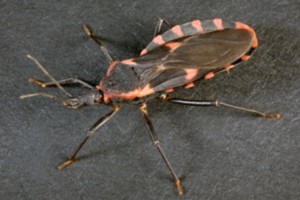 The Centers for Disease Control and Prevention (CDC) is warning Carolinas residents about the possible spread of Chagas disease after new cases surfaced in the region.
The Centers for Disease Control and Prevention (CDC) is warning Carolinas residents about the possible spread of Chagas disease after new cases surfaced in the region.
The disease is transmitted by insects commonly called kissing bugs, which feed on blood and typically bite around the face. These bites may cause swelling around the eyes or rashes on the skin. Other symptoms can include severe fatigue, body aches, and fever. If untreated, Chagas disease can progress to dangerous heart problems.
Kissing bugs are not newcomers to the United States. They are already known to live across the South, including both North and South Carolina. The insects can survive indoors or outdoors, increasing the likelihood of human contact.
Nationally, kissing bugs occur naturally in the southern half of the country and have been identified in 32 states, according to the CDC. Research shows that numerous species of kissing bugs carry the parasite Trypanosoma cruzi, the cause of Chagas disease. Infection rates in some species range from 30% to more than 50%.
At least 11 kissing bug species are found in the United States. Of those, nine have tested positive for T. cruzi. Four species, including Triatoma sanguisuga and T. protracta, are frequently discovered inside homes. This raises concern about direct transmission to humans and pets.
Although the U.S. does not experience the same levels of household infestation seen in rural Latin America, scientists note a rise in human encounters with the bugs. Increasing reports of home invasions, allergic reactions, and canine infections highlight a growing public health challenge.
Health officials emphasize that public awareness is essential. Residents are urged to recognize the insects, monitor potential symptoms, and seek medical evaluation when necessary. With continued vigilance, experts hope the Carolinas can stay ahead of a wider outbreak.


